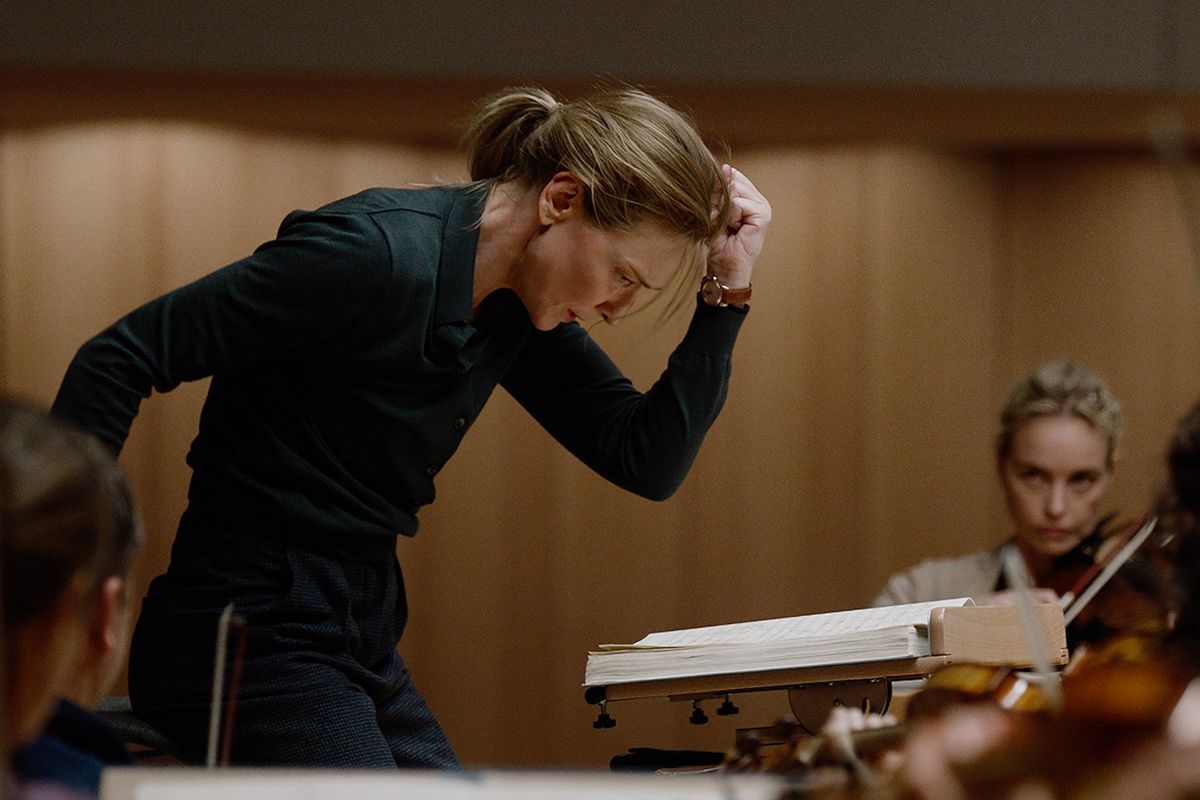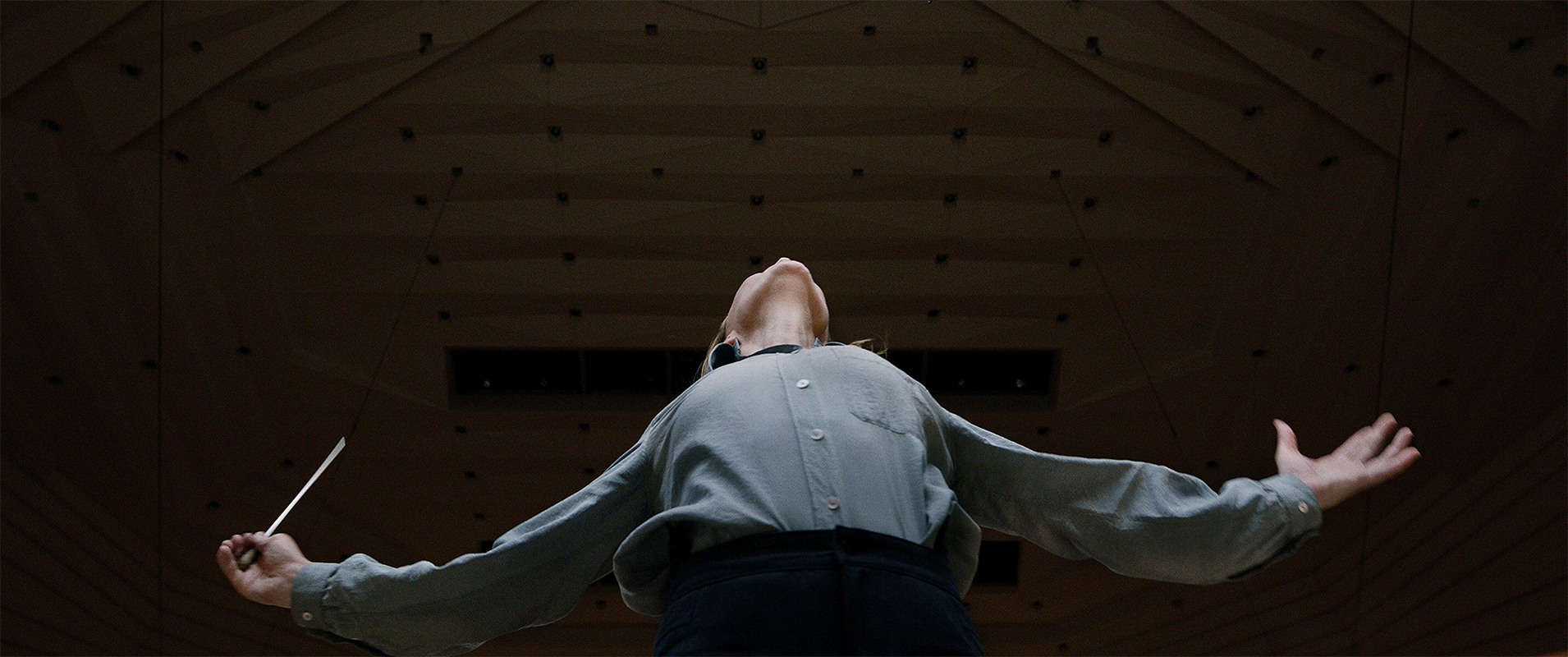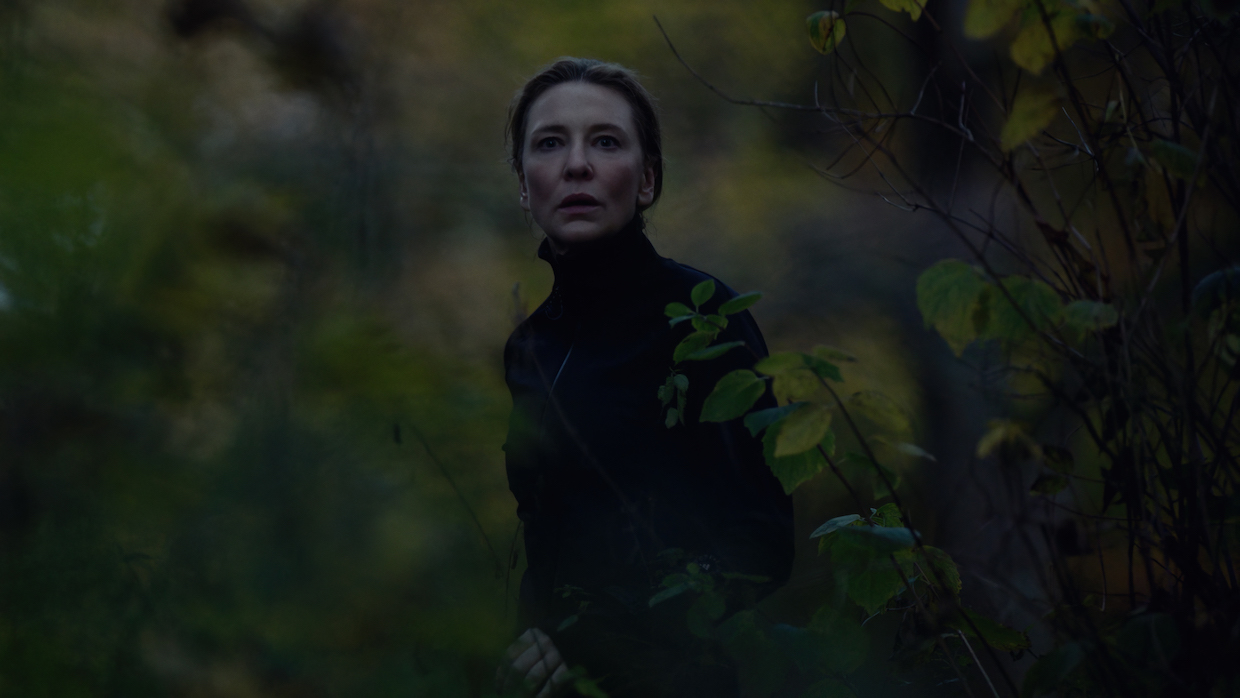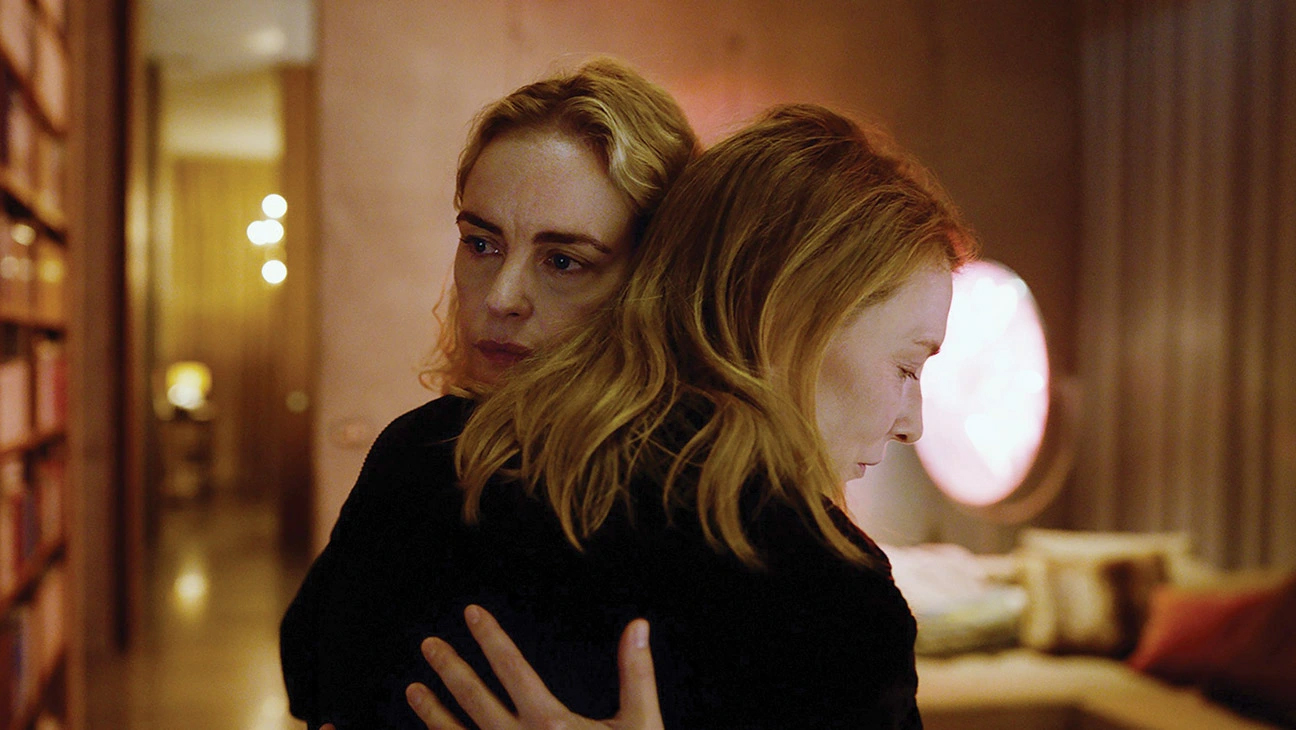This week, Tár picked up a number of major Oscar nominations, including Best Picture, Best Director, and Best Actress. As of Friday, it is also available to stream on Peacock.
Tár is a fascinating film, in large part because it defies easy characterization. It is a movie with an impressive mastery of tone, slipping effortlessly from wry black comedy to uncomfortable paranoia to gripping character drama and never losing itself in any of those transitions. Tár is also a pointedly ambiguous work, one that can be read in any number of ways. It merits conversation and discussion, and it invites the viewer to form their own opinion of its subject, conductor Lydia Tár (Cate Blanchett).
Much of the discussion of Tár has focused on its engagement with the idea of “cancel culture.” Around an hour into the film, it is revealed that one of Tár’s former students, Krista Taylor (Sylvia Flote), has taken her own life. At one point, Tár was romantically involved with the young performer. After the relationship ended, Tár made a point to sabotage and undermine Taylor’s career, using her influence to smear Taylor’s reputation, presenting her as unstable and unprofessional.
Tár is ambiguous about the precise nature of the relationship. Newspaper reports after Taylor’s death accuse Tár of “grooming” the younger musician. Even if the relationship was consensual, there was an inherent abuse of power on the part of Tár, and that was before using her power to marginalize Taylor within their industry. Tár quickly finds herself held to account for that indiscretion, losing her position, her influence, and her credibility.
In The New York Times, Michelle Goldberg hailed Tár as “a great movie about cancel culture.” Comedian Griffin Newman quipped that it was about the need to “separate the Tár from the Tártist.” On the other side of the political spectrum, right-wing media seized on the idea of Tár as a movie inherently critical of identity politics, specifically citing an early scene in which Tár tears into a young student (Zethphan Smith-Gneist) for his discomfort with the canon of “white, male, cis composers.”

On the surface, Tár is firmly anchored in the present. The opening shot of the film sees the composer watched through a screen, a live feed from somebody’s phone watching her as she sleeps on a private plane. Some viewers have wondered whether Tár is a true story and whether Lydia Tár is a real person. The movie doesn’t directly make any such assertion, but writer and director Todd Field so carefully situates Lydia Tár in a recognizable world that she reads as a real person.
Tár scans as a real person because she has the metadata. Tár’s in-universe Wikipedia article becomes a minor plot point. She is introduced as a student of the real-life composer Leonard Bernstein, whom she affectionately refers to as “Lenny.” She appears on Here’s the Thing, with Alec Baldwin playing himself. She is interviewed by The New Yorker’s Adam Gopnik, also playing himself. Gopnik runs through Tár’s career, blending fact and fiction.
In other words, Lydia Tár is as real as any person one might encounter on the internet. Late in the movie, it is revealed that Lydia Tár is herself a fiction. The conductor is really Linda Tarr, who comes from a nondescript middle-class family. Lydia Tár was just a lie that Linda Tarr sold convincingly. In a world filtered through phone screens and social media, that’s real enough.
However, despite these modern trappings, Field positions Tár as a modern take on a much older genre. To put it simply, Tár is gothic horror. It is the most traditional of ghost stories. It is the tale of somebody with a guilty conscience, desperately hoping that the past won’t catch up to them. This isn’t a metaphor. At certain points, Field places Taylor’s ghost in the background of shots. The deceased musician haunts the movie in a very literal sense.

Although Tár is a composer of her own music, she is more famous as a conductor playing others’ music. In that early interview with Gopnik, Tár explains the role of conductor. “Time is the thing,” she boasts. “Time is the essential piece of interpretation. You cannot start without me. See, I start the clock. Now, my left hand, it shapes. But my right hand, the second hand, marks time and moves it forward. However, unlike a clock, sometimes my second hand stops, which means that time stops.”
Gopnik asks her to explain how her philosophy differs from that of her mentor. She refers to her time in the Amazon, studying local tribes. “Well, Adam, the Shipibo-Konibo only receive an icaro, or song, if the singer is there, right?” she explains. “On the same side of the… the spirit that created it. In that way, the past and the present converge. It’s the flip sides of the same cosmic coin. That definition of fidelity makes sense to me.” For Tár, the moment exists only of itself — only when it is present.
“But Lenny,” Tár continues, “he believed in teshuvah, the Talmudic power to reach back into time and to transform the… significance of one’s past deeds.” According to Bernstein’s philosophy, the past and the present act on one another and inform one another. What one knows in the present can change the meaning of the past. This is the heart of Tár’s argument with that student. She insists that artists cannot be held to modern standards or judged by shifting perspectives.
There is something inherently self-serving in this. Tár is obsessed with her image and legacy. She keeps all her press clippings in boxes for her memoirs. Gopnik jokes about the length of her autobiography, Tár on Tár. Her apartment is decorated with photos of herself. She is constantly studying herself in mirrors. She is enthusiastically engaged with discussions about the proper audio format for her concert recordings.

At one point, after suggesting something “a little less considered” to the photographer (Artjom Gilz) working on her album art, the film cuts to an even more staged photo of her thoughtfully reviewing and notating her portfolio in the concert hall. Indeed, it really seems like Tár’s downfall happens when she loses control of the story, when she becomes the subject of the narrative rather than its architect.
This is perhaps the lure of conducting to Tár. She may not write the music, but she controls the tempo. She boasts to her students about “music that everybody knows, but will hear differently when you interpret it for them.” She sets the agenda. If she can control time, she can presumably prevent the past from ever catching up to her. For all that Tár is firmly set in the present — even acknowledging the pandemic — it is a story about dealing with the past.
Tár is a conductor for the Berlin Philharmonic. The city has its own traumatic and complicated relationship with history, to the point that historian Stephen Greenblatt has noted Berlin “sometimes seems one huge, eerie memorial.” Tár’s predecessor, Andris Davis (Julian Glover), points out that these accusations call to mind an uncomfortable time in Germany. “The War?” Tár asks. No, he clarifies, “Denazification.”
Central to all this is an understanding that Tár knows what she has done was wrong. “We know the things you do,” goads Sebastian Brix (Allan Corduner), her assistant composer. “The little favors you grant.” On news of Taylor’s suicide, Tár acts decisively. She instructs her assistant, Francesca (Noémie Merlant), to delete any record of correspondence with Taylor. “There’s no reason to get caught up in any intrigue.” She presses, “Now, we have to forget about her. You understand? Right?”

Sasha Handley has noted that, dating back to at least 18th century Britain, ghosts “were emblematic of unspoken truths and were commonly expected to uphold principles of social justice.” Ghosts frequently represent a guilty conscience, with Banquo’s ghost haunting the title character in Shakespeare’s Macbeth and the killer driven insane by the sound of the beating organ beneath his floorboards in Edgar Allan Poe’s “The Tell-Tale Heart.”
Tár directly evokes “The Tell-Tale Heart.” Throughout the film, Tár hears things that may not be there. There’s a rumbling in the fan in her Porsche, a recording of the same noise Todd Field’s car made after it crashed. She wakes up in the middle of the night to find a metronome ticking in her office, keeping time; she snaps the pendulum off it. As she works in her apartment, there is constant knocking at her door, and she is haunted by the sounds of distant chimes ringing in her ear.
Tár jogs around Berlin. She isn’t running anywhere in particular; she is just running. At one point, in a public park, she is disoriented by the sounds of distant sirens and a woman screaming. It might even be the same scream from the end of The Blair Witch Project. These experiences inform and shape her work. She mimics that distant chime on the piano. After that intense experience jogging, she instructs the bass section to play “like we’re hearing it from a very great distance.” The art and the artist are inseparable.
Field is frequently compared to Stanley Kubrick, with whom he worked on Eyes Wide Shut. Tár owes a lot to Kubrick, with its symmetrical framing along with its large and eerily empty spaces. Tár sits alone in big empty concert halls, wanders through her spacious empty apartment, and drifts through a haunted Berlin. At one point, she goes to visit Francesca in her apartment, to find the space empty and abandoned. She follows a young cellist (Sophie Kauer) to an abandoned and decaying ruin, perhaps a metaphor for her legacy.

Ghost stories are about reckoning with William Faulker’s observation, “The past is never dead. It’s not even past.” In planning to conduct Gustav Mahler’s Symphony No. 5, Tár points out that it was inspired by Mahler’s loving relationship with his wife Alma. She insists that later accounts of their unhappy marriage cannot color the composition. This is another self-serving argument, given Tár’s disintegrating relationship with her own wife, Sharon (Nina Hoss), the orchestra’s first violin — a position comparable to conductor, but less showy.
This is Tár’s argument for what has been termed “accountability culture.” History repeats, as long as it is allowed to. “We all have the same musical grammar,” Andris warns his successor, pointing out that even Beethoven stole from Mozart. “Schopenhauer measured a man’s intelligence against his sensitivity to noise,” he notes when Tár complains of hearing things. Notably, that distant chiming stops when Tár actually investigates the source, helping her elderly neighbor (Rose Knox-Peebles).
If these ghosts are voices of conscience, then perhaps they are worth listening to. In the movie’s opening shot, the text exchange over the live feed of Tár sleeping on her private plane describes the conductor as “haunted.” The reply reads, “ha you mean she has a conscience.” The final word is equivocal: “maybe.”






Published: Jan 25, 2023 10:00 am